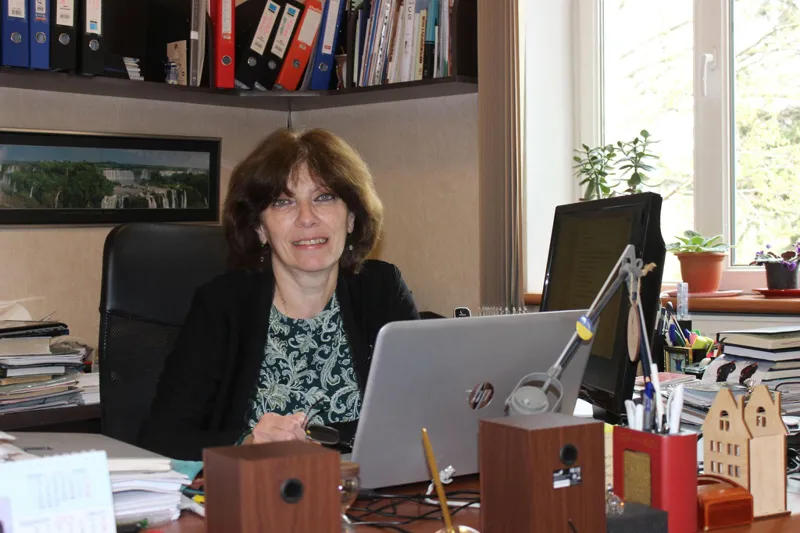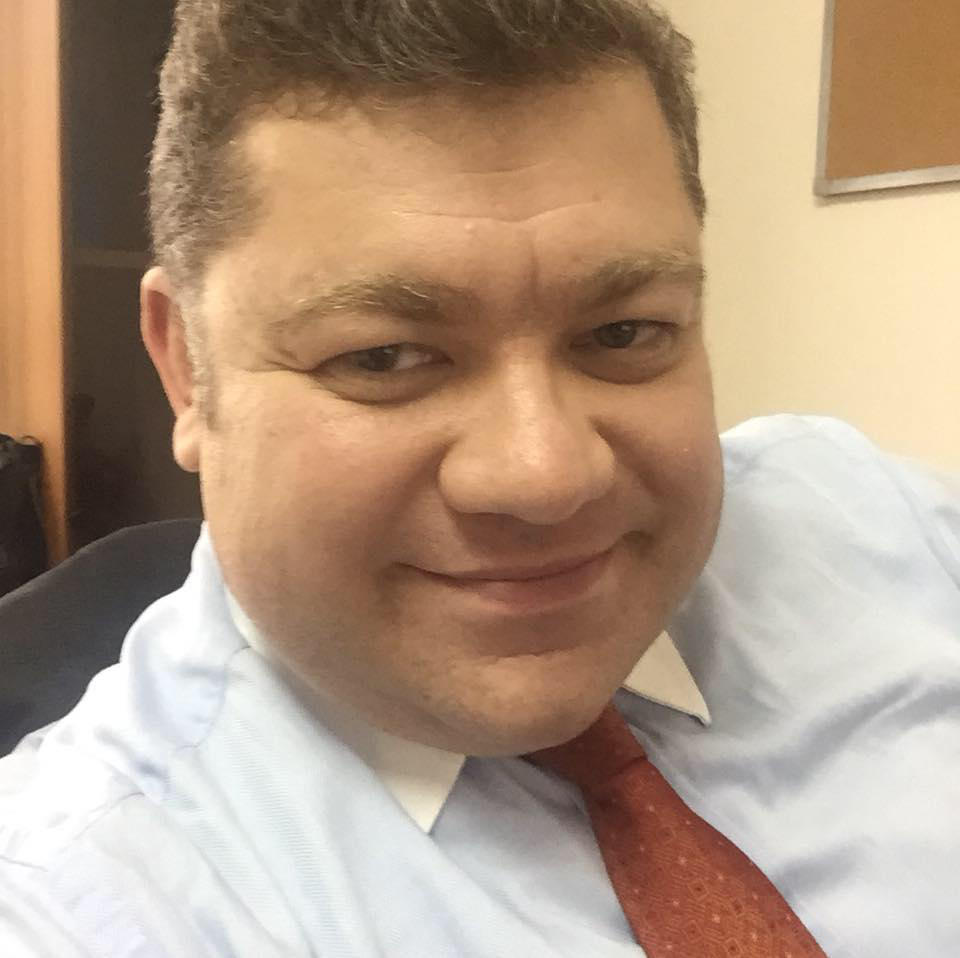Knowledge and experience that Georgia shares with the world - what does the Giorgi Eliava Institute of Bacteriophages do today?

The Giorgi Eliava Institute of Bacteriophages, Microbiology and Virology was founded a century ago in Tbilisi. Together with the outstanding Georgian microbiologist Giorgi Eliava, the French-Canadian scientist, Félix d'Hérelle, who was one of the discoverers of the bacteriophage phenomenon, worked to establish the institute in Georgia. In the 1930s, these two scientists worked together at the Institute Pasteur in Paris, where the idea was born to transform the existing institute of Bacteriology in Georgia into a world centre for bacteriophage research.
During the Soviet period, the Eliava Institute played an important role in the development and production of new biological products (including vaccines, sera, diagnosticums, immunoglobulins, and phage preparations) against various bacterial and viral diseases. Today, the Giorgi Eliava Institute of Bacteriophages, Microbiology and Virology is recognised as having the world's most extensive and valued collection of bacterial strains together with bacteriophages active against them. The collection consists of more than 1,000 phages, more than 12,000 bacterial strains of 44 genera and 180 bacterial species isolated both, in Georgia and in different regions of the world.
The information about scientific activities of the Eliava Institute, also the “all-services-in-one” principles, currently operated at the Eliava and, the future of bacteriophages in general, on a global scale, Dr Mzia Kutateladze, director of the Eliava Institute of Bacteriophages, Microbiology and Virology is sharing with us.
What does Giorgi Eliava Institute of Bacteriophages, Microbiology and Virology do today?
The Eliava Institute of Bacteriophages, Microbiology and Virology, which is a well-known scientific centre in the world for the study of bacteriophages, operates in several directions. The scientists of the Institute isolate new phages, select and study them in detail, also determine possibilities for their applications in various fields.
In addition, the Giorgi Eliava Institute, together with its associated facilities, is designated as a Consortium, which provides comprehensive services. Specifically, the Consortium includes an analytical-diagnostic centre, the production of phage preparations, a phage therapy centre - a medical facility, and a pharmacy that are located in our territory. These organisations, united around common ideas and goals, ensure the delivery of high-quality, efficient, phage-based products and services. It is the healthy and collegial co-existence of professionals and companies in one space that strengthens and improves our work, which in turn makes the scientific institute advanced and successful at the global scale.
Tell us about current projects
At the Eliava institute, scientific research is carried out in different directions, however, the main task of projects is the isolation of active bacteriophages against different pathogenic bacteria, their detailed study and the development of new phage preparations, as well as the design of appropriate methodology for the practical use of phage products.
As just mentioned, our main focus is the isolation of phages against bacteria that cause human, animal or plant bacterial diseases. We also study bacteria that cause infectious diseases. Antimicrobial resistance (AMR) is one of the most important problems of world medicine today. We, by studying phages, try to address this dangerous global problem and challenge, due to the Eliava’s long history of successfully using of phages as antibacterial agents.
Several scientific projects, financed by the Rustaveli National Science Foundation, as well as by various international foundations are underway at the institute. Recently, young scientists of the Institute participated in a very prestigious competition within the framework of the European Union HORIZON-WIDERA-2023-ACCESS-02 program and were awarded a grant for the ASCLEPIUS project. The project, which will be led by the Eliava Institute, will focus on phage therapy and the knowledge exchange between consortium members; and on relevant collaborative scientific studies for a phage treatment of infections caused by certain pathogens. The Eliava Institute's scientific partners in the project are the National Research Institute of Agriculture, Food and Environmental Protection from France and the University of Minho in Portugal. The project will start in October 2024 and will last 36 months.
What do you consider to be the biggest achievement of the Eliava Institute?
Of course, the large collection of bacteriophages accumulated during our history is very important and interesting. However, our most valuable and important achievement is knowledge embodied in the human resources that the institute possesses.
For many years, scientists of the institute have created unique know-how, which is passed down from generation to generation. It is this knowledge that is most valuable to us today, and it is this experience that underscores our greatest potential contribution worldwide.
What is the world's response to Phage and the Eliava Institute today?
Today, “Eliava” is recognised brand name. Those scientific organisations and companies in the world that start working on phages contact us and wish to collaborate with us to share our experience.
On the other hand, many media outlets of various countries contact us and shoot stories or documentaries about us, and many scientific and popular publications are created about the achievements of our institute. Our archival materials were included in many videos created by foreign journalists. I would highlight such famous programs and news media as the BBC, which filmed a story about us several times, as well as Arte, National Geographic, France24, Vice, Stern, etc.
Today, in the background of the world's leading research centres, what determines the popularity of the Eliava Institute?
This is the knowledge and know-how that we have accumulated during the century. The history of phage therapy, in fact, begins with the Institute Pasteur in Paris and in our, Tbilisi Institute.
However, we must mention here that many private and state organisations in the world are starting to work on bacteriophages. Several dozen clinical trials are underway in the US alone. In Great Britain, development of a phage research strategy and activities/applications are taking place at the governmental level. Belgium and Australia are also very active in this direction.
Work on phages and phage therapy is an active and dynamic process. It is a difficult path that we started a long time ago and we also remain leaders in this direction. We try to share our experience as much as possible with everyone who is interested in working with phages. That's why we created a summer school program that is mainly aimed at foreign students and scientists. We held this school for the first time in 2017. A few years later, due to the pandemic, the lessons could no longer be held. This year, we renewed it again and are ready to receive up to 50 foreigners. Both young, inexperienced students and already established scientists are asking to participate in our training course. With this summer school, we join the youth scientific festival, which is held this year by the Ministry of Education, Science and Youth of Georgia.
And finally, tell us why phage therapy is a unique treatment method?
Phage therapy is a treatment method used against various diseases caused by bacterial infections. Phages are used against both, acute and chronic infections, including antibiotic-resistant infections. Phages successfully combat harmful bacteria that exhibit multiple resistance to antibacterial agents (eg, Methicillin-resistant Staphylococcus (MRSA), beta-lactamase-producing bacteria (ESBL), carbapenem-resistant (CRE) and vancomycin-resistant (VRE) strains) that today are a dilemma for medicine. Phages are also used in bacterial biofilms, when drug penetration into biofilms is quite difficult. Due to the nature of the phage, its application does not cause any side effect, such as, for example, allergic reactions. This bacterial virus also helps to maintain and restore the normal bacterial balance in the body.
Worldwide, with the drastic increase and spread of antibiotic-resistance, a century-old phage therapy, due to its special features, can be considered as one of the important fields of medicine of the future, and one in which our Eliava Institute will plays one of the most important roles.
We at the Eliava Institute are happy to welcome the announcement by the Prime Minister of the country regarding the consideration of bacteriophages as one of the State priorities. We are glad that the experience, professionalism and activities that the Eliava Institute has been carrying out for almost a century have been appreciated and recognised as important. With state support, our institute, its team, professionals in their field - scientists, doctors, and all employees will be able to do even more useful work, take care of the health of even more people, not only in Georgia, but worldwide.
(AD)
